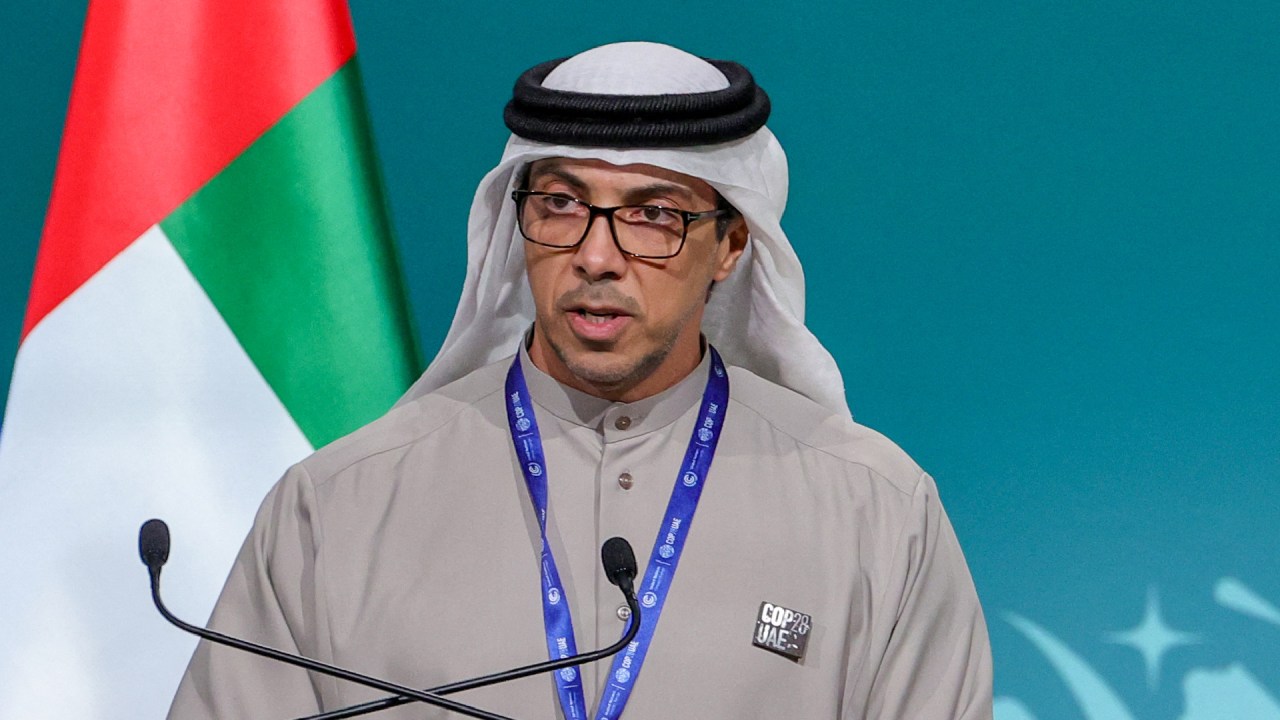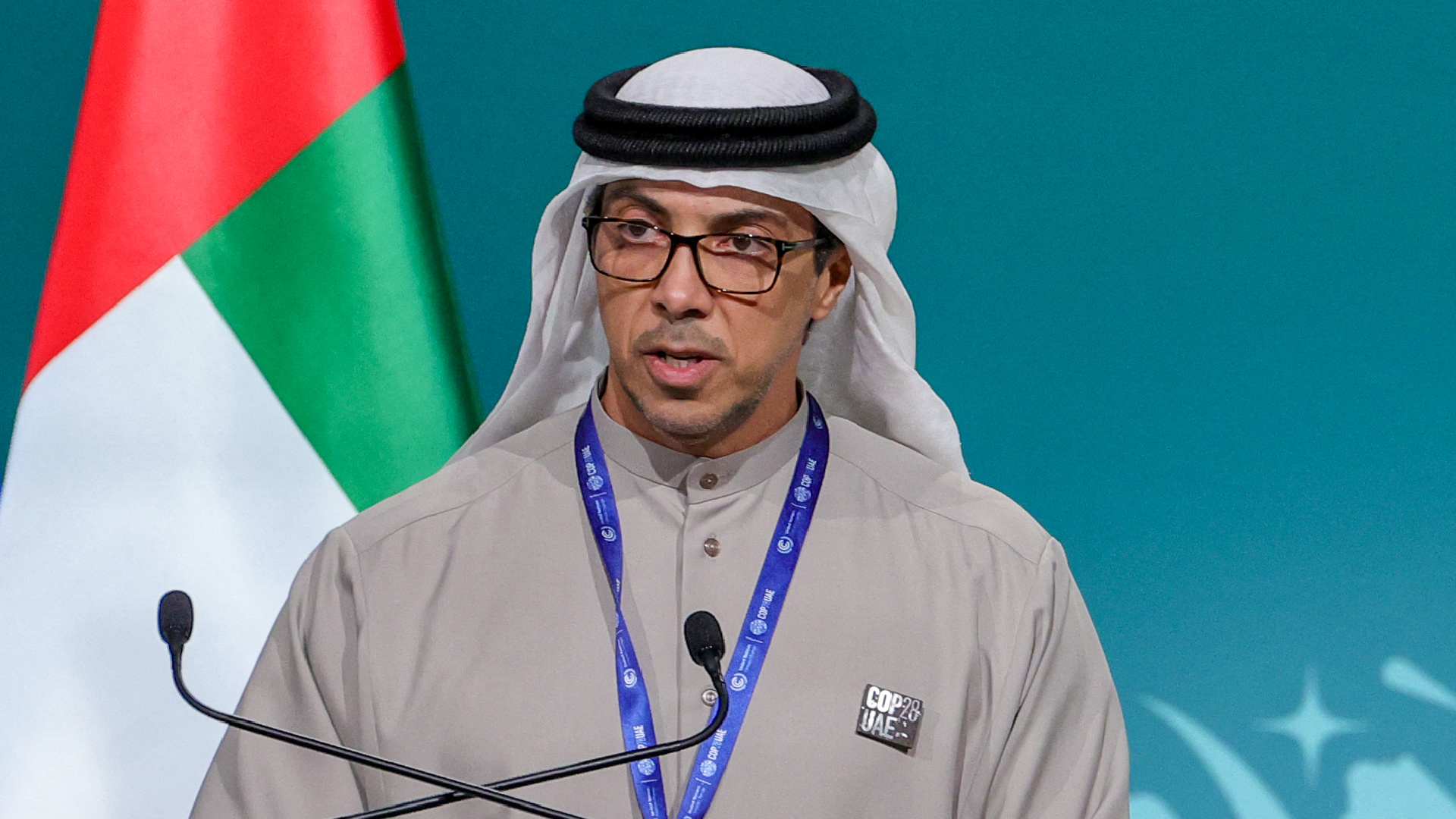Fraser Nelson has narrated this article for you to listen to.
George Osborne was originally meant to fill this slot. We were always rather mean to him when he was chancellor (deservedly so) so it pains me to admit what a good diary writer he is: always stylish, engaging, ready to spill some beans. He had agreed, but then suddenly pulled out, leaving us scrambling. Something had come up, he said. But what? The next day’s papers brought the news: he has been hired to advise the Emiratis in their bid to buy this magazine and the Telegraph. To write for us and sell us at the same time may have been a bit much, even for this famously adept multitasker.
I’d love to know what advice Osborne is giving the UAE. The Emiratis stand to be the first government in the world to buy a national newspaper in another country, so it’s a test case. Lucy Frazer, the Culture Secretary, is considering what to do. Until now, sovereign wealth funds of foreign governments have been allowed to buy airports, shopping centres and even football clubs. But to buy newspapers, even through a vehicle like RedBird IMI, raises certain sensitivities. At least, it does if you think that a free press is important.
The problem isn’t foreign ownership. Many of our newspapers have thrived under Australian, American, Canadian and (recently, with the FT) Japanese control. But for a foreign government to become a proprietor? That’s something quite new. Newspapers and magazines are not like trains or shopping centres: they’re a vital part of our democratic apparatus. The British tradition has been that of a free press – and ‘free’, of course, means free from government interference. How to reconcile this principle with governments actually owning publications? One mooted solution is to set up a board of independent directors who would, in theory, act as a fireguard by protecting the editor. Results vary. Rupert Murdoch was asked to set up such a board when he bought the Times, to limit his influence. When this board refused to approve his change of editors in 2013, he made them ‘acting editors’ instead. Problem solved. Filip Styczynski, director of TVP World in Poland, is protected by an editorial board. He has just been sacked (to the board’s fury) but he keeps the title ‘editor’ so, technically, it’s all legit. You get the idea. When Frank Giles was sacked as editor of the Sunday Times, his title was changed to ‘editor emeritus’ as he served out the rest of his contract. Legend has it that the mild-mannered Giles asked Murdoch what on earth this new title meant. ‘It’s Latin,’ came the reply. ‘E means “exit”. “Meritus” means “you’ve earned it”.’
I’ve met Jeff Zucker, the American to whom I’d report as editor. He strikes me as decent, professional, respectful of The Spectator’s traditions and not the type to take editorial orders from the Emiratis. As editor, I’d certainly not enact any such orders. But either of us could be replaced in two shakes of a camel’s tail – and this is the problem. Protection based on two personalities is no protection at all. How to resolve this? How to guarantee editorial independence in the scenario of de facto Emirati government ownership? I’m afraid I have no idea. Perhaps Osborne does. If so, he’d be welcome to take this slot next week.
Time was when Tory MPs were so opposed to sovereign wealth funds that they refused to drink in the cocktail bar of the Corinthia hotel, because it was financed by Libya. When Colonel Gaddafi was deposed, they all rushed in and it became a Tory haunt. Good hunting ground for journalists, as drinks were so expensive that politicians needed someone else to pick up the tab. Even journalists struggled to get a whole evening there on expenses. One No. 10 aide would line up journalistic drinking sponsors in 90-minute slots. The teetotal Rishi Sunak was never so corruptible. His social invitations tend to involve 7 a.m. spin exercise classes. In his sobriety the Prime Minister is in tune, as our cover story says, with much of young Britain.
When Svitlana Morenets arrived here as a refugee from Ukraine, she knew no one. She had been a journalist in Kyiv but a JobCentre adviser told her immigrants do not become journalists in the UK. They suggested cleaning work instead. Undaunted, she applied for The Spectator’s anonymised internship scheme – and has been with us ever since. Last summer, she reported from the Donetsk front line and exposed a scandal in medical aid for wounded soldiers. This week, she was nominated in the UK Press Awards for Young Journalist of the Year. Whatever happens on the night, to end up in such company – from such an improbable starting place – is quite the achievement. Slava Svitlana!









Comments
Join the debate for just £1 a month
Be part of the conversation with other Spectator readers by getting your first three months for £3.
UNLOCK ACCESS Just £1 a monthAlready a subscriber? Log in